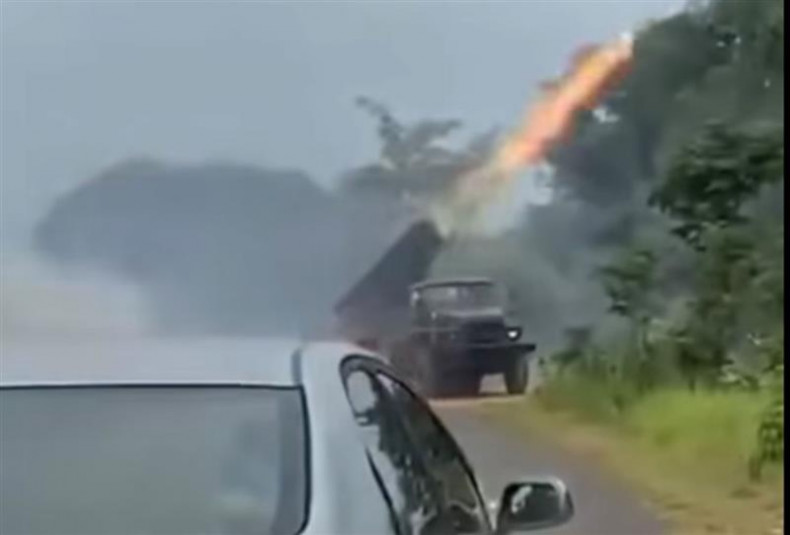

BANGKOK: Thailand launched air strikes on Cambodian military positions on Thursday as the border conflict between the two countries sharply escalated, with clashes reported in at least six locations.
Col Ritcha Suksuwanon, deputy spokesperson for the Royal Thai Army, confirmed that six F-16 fighter jets were deployed from Ubon Ratchathani province late Thursday morning.
The aircraft struck two Cambodian military targets on the ground. “We have used air power against military targets as planned,” he told reporters.
According to the army, the air strikes followed an early morning assault by Cambodian troops.
At around 7:35 am, Thai soldiers stationed near the Ta Muen Thom temple ruins in Phanom Dong Rak district, Surin province, detected a Cambodian unmanned aerial vehicle overhead.
Moments later, six armed Cambodian soldiers approached a barbed-wire fence near the Thai military base.
Thai soldiers reportedly shouted to avoid escalation, but at 8:20 am, Cambodian forces opened fire on the Moo Pa military base, situated about 200 metres east of the temple ruins.
Thai army officials accused Cambodian troops of positioning artillery within civilian communities, effectively using civilians as human shields. At 8:50 am, artillery fire was directed at the historic temple ruins.
Gunfire resumed at 9:15 am near the Moo Pa base, injuring one Thai soldier. Both light and heavy weapons were used. At 9:40 am, Cambodia fired BM-21 rockets at the Don Tuan temple ruins in Thailand’s Si Sa Ket province.
Shortly after, at 9:55 am, Cambodian forces reportedly fired into a residential area near the Kap Choeng district border development centre in Surin, injuring at least three civilians.
Authorities began evacuating residents from the area. The escalation came a day after five Thai soldiers were injured by a landmine explosion near the Chong An Ma border crossing in Ubon Ratchathani. One of the soldiers lost a leg.
Thai military sources alleged that the landmines were recently planted by Cambodia.
In response to the clashes, Lt Gen Boonsin Padklang, commander of Thailand’s 2nd Region Army, sealed the northeastern border and ordered the closure of temple ruins in Surin province, effective Thursday morning. Cambodian Prime Minister Hun Manet stated on Facebook that Thai forces had attacked Cambodian military positions at the Preah Vihear and Ta Krabei temples in Oddar Meanchey province.
“Cambodia always maintains a stance of wanting to resolve issues peacefully, but, in this case, we have no choice but to respond with armed force against this armed invasion,” he said.
On Wednesday, Thailand expelled the Cambodian ambassador, Hun Saroeun, and recalled its envoy from Phnom Penh. Bangkok also briefed foreign military attachés and diplomats in Cambodia and is seeking international action under the United Nations’ Anti-Personnel Mine Ban Convention. Bilateral discussions are also under way.
The latest confrontation marks the most serious flare-up since the 2011 border conflict, which resulted in dozens of deaths.
Following a previous clash in May, Cambodia requested that the International Court of Justice (ICJ) in The Hague help resolve four disputed border areas.
Thailand has maintained that it does not recognise the ICJ’s jurisdiction in the matter.